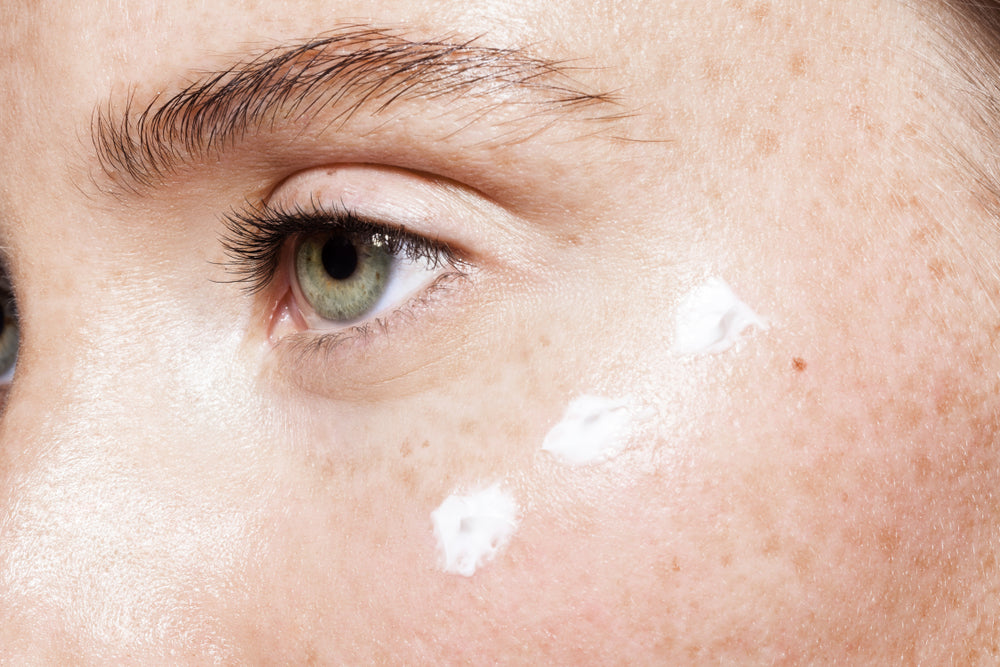Sleepless nights and stressful days can make an appearance in the form of those dreaded puffy, under-eye circles. In this post, Dr. Zenovia breaks down the main causes and top treatments for dark under-eye circles.
What Causes Dark Under-Eye Circles?
There isn’t one singular cause for dark circles. Sleep deprivation, dehydration, and poor eating habits are a few lifestyle factors that may contribute to dark under-eye circles, but genetics and hormonal aging also play a major role. Some people tend to develop darker under-eye circles based on their physiology. The under-eye area also tends to appear darker on lighter skin tones, but many people with darker skin notice a sharp cut-off around the eyes.
What Are the Best Treatments for Dark Under-Eye Circles?
A combination of quality skincare products, healthy lifestyle habits, and professional cosmetic treatments can help improve the appearance of dark under-eye circles.
Topical Skincare
While skincare won’t provide the same effects as a cosmetic procedure, many quality eye creams contain ingredients that help brighten and smooth the under-eye area. Dr. Zenovia’s Retinol Recovery Eye Cream contains All-Trans-Retinol technology and 90% Green Tea Polyphenols to help brighten dark circles and support the skin’s natural cellular turnover process, fighting against the formation of fine lines and wrinkles. The retinol is formulated for the delicate under-eye area and will not irritate the skin.
Dr. Zenovia also loves using an under-eye concealer during the daytime to give her eyes a rested, bright look. While makeup won’t treat dark circles, it can boost overall confidence!
Healthy Lifestyle Habits
- Quality Sleep: Sleep deprivation can appear on our facial skin as dullness and paleness, allowing for dark tissues and blood vessels beneath the skin to show. Lack of sleep can also cause a buildup of under-eye fluid, causing our eyes to appear puffy. Our skin cells do most of their regeneration and turnover while we sleep- rest is essential for our skin’s health. The National Sleep Foundation recommends getting at least 7 to 9 hours of uninterrupted sleep each night—your skin will thank you!
- Hydration: When our bodies aren’t receiving enough water, the skin beneath our eyes begins to look dull and sunken. Follow the 8-8 rule: Aim to drink at least eight 8-ounce glasses of water daily to maintain your hydration levels.
- Healthy Eating: Hydrating and antioxidant-rich foods can help boost circulation and balance fluids. Some foods to include in your diet for overall skin health include cucumbers, tomatoes, celery, watermelon, blueberries, goji berries, and spirulina.
- Sun Protection: Overexposure to the sun’s harmful UV rays can cause the body to produce excess melanin pigment. Too much sun around the under-eye area can therefore cause pigmentation in the area to darken. Wearing facial sunscreen, a hat, and sunglasses outdoors will help protect the skin.
Cosmetic Treatments
In-office treatments including peels, lasers, and fillers can have long-term effects on improving the appearance of under-eye circles. Chemical peels help lighten the skin and reduce pigmentation while Botox and filler can smooth the skin out and help eliminate shadows and hollowness. Dr. Zenovia recommends booking a consultation with a board-certified dermatologist to discuss which cosmetic treatment options would be right for you. Many treatment options are expensive and painful.
Note from Dr. Zenovia: Chronic dark circles that refuse to go away can be genetic or hormonal. Many patients with adrenal fatigue have a hard time falling asleep due to the body increasing its production of cortisol. You may not feel tired, but your skin’s dark circles can be indicative of hormonal imbalance. If at-home treatments don’t seem to be helping consult a board-certified dermatologist for an evaluation.
[slider collection="Treatments" title="Shop Hormonal Skin Care Treatments"]


